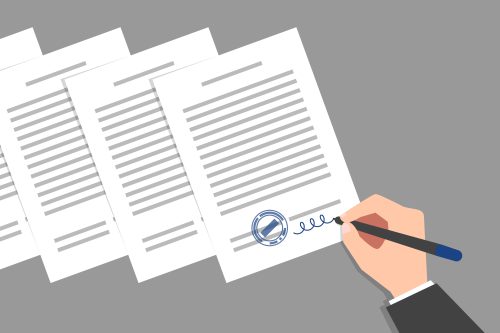 Thanks to Emanuele Mirra for collaborating on this article
Thanks to Emanuele Mirra for collaborating on this article
-
Scope and key principles
On October 17, 2022, Legislative Decree No. 149 of October 10, 2022 was published in the Gazzetta Ufficiale for the purpose of reforming civil court proceedings and, at the same time, strengthening alternative dispute resolution tools.
The principles most often cited in the Legislative Decree, which guides interpretation of the reform, are as follows:
- Clarity and conciseness of court documents and orders;
- Cooperation between the parties and the judge;
- Fairness and transparency as key elements of due process.
According to these principles, the judge is required to assess the procedural conduct of the parties and to sanction unfair behavior under Section 96 Code of Civil Procedure (“CCP”).
Although the text of the law has already entered into force, many of the new aspects introduced will become effective as of June 30, 2023 and will apply to trials starting after that date, while some relevant new provisions are awaiting implementing ministerial decrees.
-
Changes to ordinary proceedings on the merits
The most important changes to simplify and speed up ordinary proceedings are the following:
- A justice of the peace will have jurisdiction over claims for amounts greater than in the past (increases of up to EUR 10,000 for disputes related to movable property and up to EUR 25,000 for vehicle and watercraft damage disputes). This will enable courts to handle fewer disputes, streamlining the handling of ordinary judgments.
- The first hearing will play a fundamental role: claims, exceptions, and evidentiary requests will be finalized when the judge holds the first hearing. The judge then will have a broader understanding of the case and be prepared to manage it. In particular, the judge is required to schedule a full calendar of proceedings, including the hearing on evidentiary parties’ submissions, which must take place within ninety days of the first hearing. Should the dispute not require complex evidentiary examination, the judge can switch to summary proceedings.
- Some procedural hearings (e.g., the final hearing) will be eliminated or will be replaced by the filing of written notes between the parties.
- The decision-making phase has been shortened, as tighter deadlines have been set for the filing of final defensive briefs.
-
Summary proceedings will be simplified
Summary proceedings provided in Section 702-bis ff. CCP shall be used in any litigation in which (i) the parties do not dispute the facts and (ii) claims are based on documentary evidence or otherwise do not require complex investigation. Early in the process, the court may grant or dismiss a petitioner’s claims when (i) facts are proven and the defendant’s defense appears to be manifestly groundless; or (ii) claims are manifestly groundless or, pursuant to Section 163, para 3, no. 3 or 4 CCP, claims are poorly described and unclear.
-
Appeals
- Second-instance proceedings
New rules will expedite the dismissal of manifestly groundless appeals. In particular, following brief oral discussion between the parties, a court of appeals may dismiss an appeal preemptively when it does not have a reasonable chance of success. In this case, the court of appeals writes a short-form judgment that cites the most authoritative court precedents. Moreover, to speed up the proceedings and shorten the overall duration, the court of appeals will have more power to rule on the merits when upholding an appeal rather than sending the case back to the first-instance court.
- Supreme Court of Cassation
When parties dispute a point of law in proceedings on the merits, the judge may send the case to the Supreme Court of Cassation with the aim of applying the legal interpretation of the Supreme Court of Cassation.
- Revocation of final judgments
One change is the introduction of a new extraordinary remedy to a final decision added to the existing ones (for instance, a party may seek revocation of a final judgment if it was based on evidence that was found to be false or if the judgment was rendered in the presence of willful misconduct on the part of the judge). In particular, a judgment that has become final also may be reversed if the European Court of Human Rights finds that the judgment conflicts with the ECHR.
-
Arbitration
In changes related to ADR, arbitrators will have the power to grant interim measures if provided in the arbitration clause. In addition, in an effort to strengthen the reliability of arbitration, new rules will ensure the impartiality and independence of arbitrators. In particular, parties will have the right to demand that an arbitrator recuse themself, and arbitrators will be required to disclose all factual circumstances so that their impartiality may be assessed before they begin providing their services.
-
Digitization
- Electronic filing will be mandatory for all proceedings with no exemptions.[1]
- The judge shall order remote hearings or replace oral discussion with the filing of written notes when only parties, counsel, and public prosecutor[2] are required to attend. Therefore, this does not apply to witness examination hearings. In any case, parties may always request that a hearing being held in person.
-
Concluding remarks
Former Minister of Justice Cartabia formulated these changes with the intention of decreasing the length of proceedings by 40 percent.
If and how much they will prove beneficial will depend on the implementing rules that are expected to be provided by later ministerial decrees. Further, the ability of the court organization to stay up to speed with the new provisions on timing and simplification will be crucial. To this end, an additional step forward could be to increase the number of judges, which would lead to dealing with the backlog more quickly and encourage the use of alternative dispute resolution remedies.
However, stricter deadlines, case management hearings, simplified procedures, including appeals, and extensive use of remote hearings will significantly improve the civil court system. Also, giving arbitrators the power to issue interim measures is a big change that will shrink the largest gap between Italian arbitration practices and the practices in other jurisdictions.
[1] Electronic filing is already mandatory for most filings, but there are still a few cases in which hard-copy filing can be done, including proceedings before a justice of the peace (where there is currently no electronic filing system).
[2] In civil proceedings, the public prosecutor is involved in a very limited number of cases.

